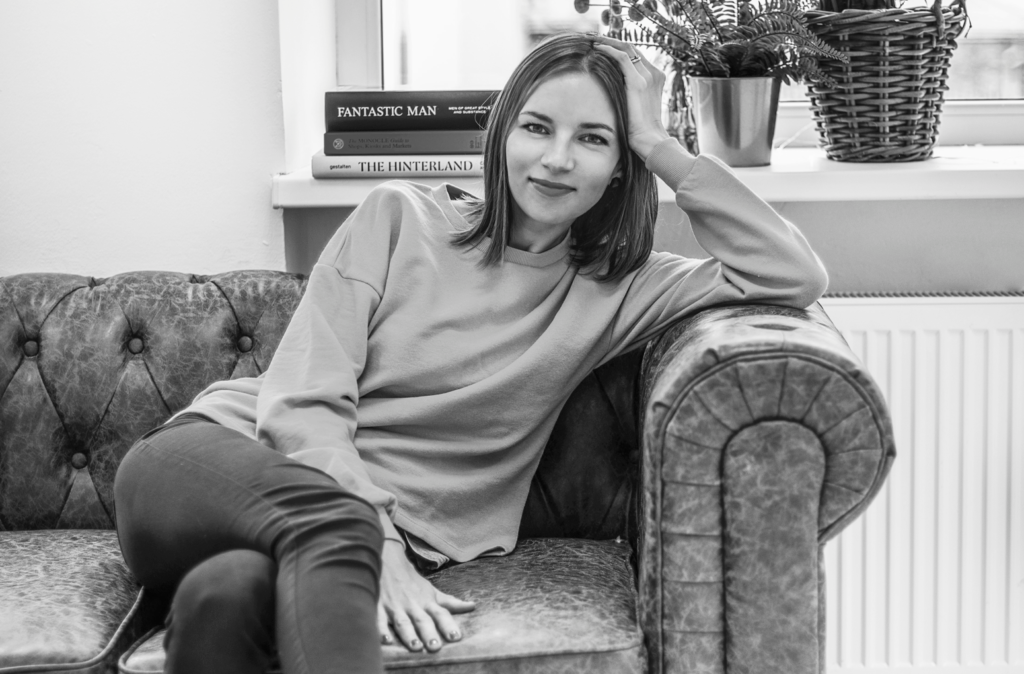Toma Liutikė
Founder of „Kūnas Mags & Books” bookstore

I’ve been making this joke of late (although there is nothing funny about it) that Lithuania is only a few steps away from civil war. A slightly more hot-tempered nation would have been out on the streets by now, defending their truths. No place for LGBT people on our sacred soil / LGBT people are welcome / Coronavirus does not exist / Get vaccinated and save lives / Conventions are evil / We have the right to freedom of speech / Open galleries and museums because people need culture.
What we are currently witnessing on social media tends to be attributed to the pandemic and its effects, such as the worsening of mental health. That shouldn’t come as a surprise to anyone – we have been living under stricter or milder quarantine conditions for over a year now, questioning whether life as we know it will ever return. For all we know, we may never stand in front of an actual painting again or observe some weird, unexpected installation in a gallery. We may never inhale the smell of theatre, mixed with perfume and dust. We may never be able to chat with our friends while waiting excitedly for a gig to start.
I agree with Tomas Ramanauskas who says that we are fed up with flat screens and virtuality by now. That visiting a museum on your computer is null and void, like licking ice cream through the plastic wrapper – you know what’s inside but you get no satisfaction from it. That watching a theatre play on your screen is not that different to watching a small-budget film, making you cringe and cover your eyes with only an occasional peek through the gaps between your fingers.
But this text is not my excuse to have a public sob over the life which has been put on hold due to the pandemic.
Toma Liutikė
It’s not like we can do much about it anyway. Unless we take to the streets – joke!
I am, however, pleased to see that some have managed to adapt. To me, the best example is the MO Museum in Vilnius. The Lithuanian Mecca of art and culture chose acting over crying and found creative ways of communicating: counting down days without the museum, podcasts, newsletters, film recommendations, interviews, LIVE talks, exhibitions projected on the external wall of the museum… On top of that, MO have submitted a proposal to the Lithuanian President and the government for the pilot opening of the museum in Vilnius. The proposal outlines that “a recent study by the Berlin Institute of Technology confirmed that museums are the safest indoor spaces.” So there’s a glimmer of hope that we will be able to enjoy art live again.
I am not downplaying the effort of the many other cultural institutions in Lithuania, which are reaching out to their supporters to say they are still here in the hope that the return of the good old life will bring back the good old admirers of culture and art. Let’s hope we’re heading the right direction.
Can culture help?
But I’d like to return to the lack of basic culture, as manifested in the war zones on social media and our distorted society. I don’t know about you but I am actually glad I can stay at home and I don’t have to meet those people on the streets. I mean THOSE ones – the angry, disgruntled, venomous, inadequate trolls who lack basic manners. And I am a little scared to think that when this is all over these people will still be amongst us.
Back in 2015 when I was studying journalism, I remember seeing “War 2020”, a documentary by Martynas Starkus and Jonas Banys (don’t ask me why that fateful year was in the title). The film was about the information wars happening online, showing the staff of a Russian-based “troll factory” implant commentary into various portals, social media, etc., encouraging division within the society and targeting Lithuania and other former Soviet states.
Yes, the same old news on the cyber war which President Grybauskaitė spoke so much about. I personally completely ignore any comments left by people whose profiles are blatantly new, created only recently. There are no signs of a normal human being behind them: no photos, no personal profile going back further than twelve months. But it does scary me that my Facebook friends (or the ones whose appearance amongst my “friends” is hard to explain) start spreading those unfounded ideas, too. They share and comment on various unreliable sources screaming with propaganda. This cyber virus, infecting the minds of real people, spreads as quickly as coronavirus.
People form the art world often argue: “Do you see what is happening on social media? The public are tired of sitting at home, they are missing art which purifies the soul. You have to let the creative sector open up again.” But do we really believe that art could help solve the current spread of online hatred? I sincerely doubt that. It will be us – the ones who don’t post comments online – going back to the museums, galleries and theatres, the ones who find ways of enjoying culture even during lockdown: we read books, watch good films, listen to music and pursue other soul-stimulating activities.
I have learnt something else during my journalist studies. The fact that TV news is dominated by crime does not mean that crime rates in Lithuania are high. It’s a simple psychological effect – by showing these things publicly, the media magnifies them to the point where it seems that crime is the only thing surrounding us. I think something similar happens with the people lacking basic culture on social media. They are a minority but a very loud-speaking one nonetheless.
Yet who could count those who are well-mannered, quiet observers not willing to waste their time on dumb commentary?
Toma Liutikė
So I invite you to join the latter group.
Thank you for reading this. Now turn off your computer, put your phone aside and open a book. Your soul will thank you and your mental health will improve. Let’s not give up – spring and light are coming.




